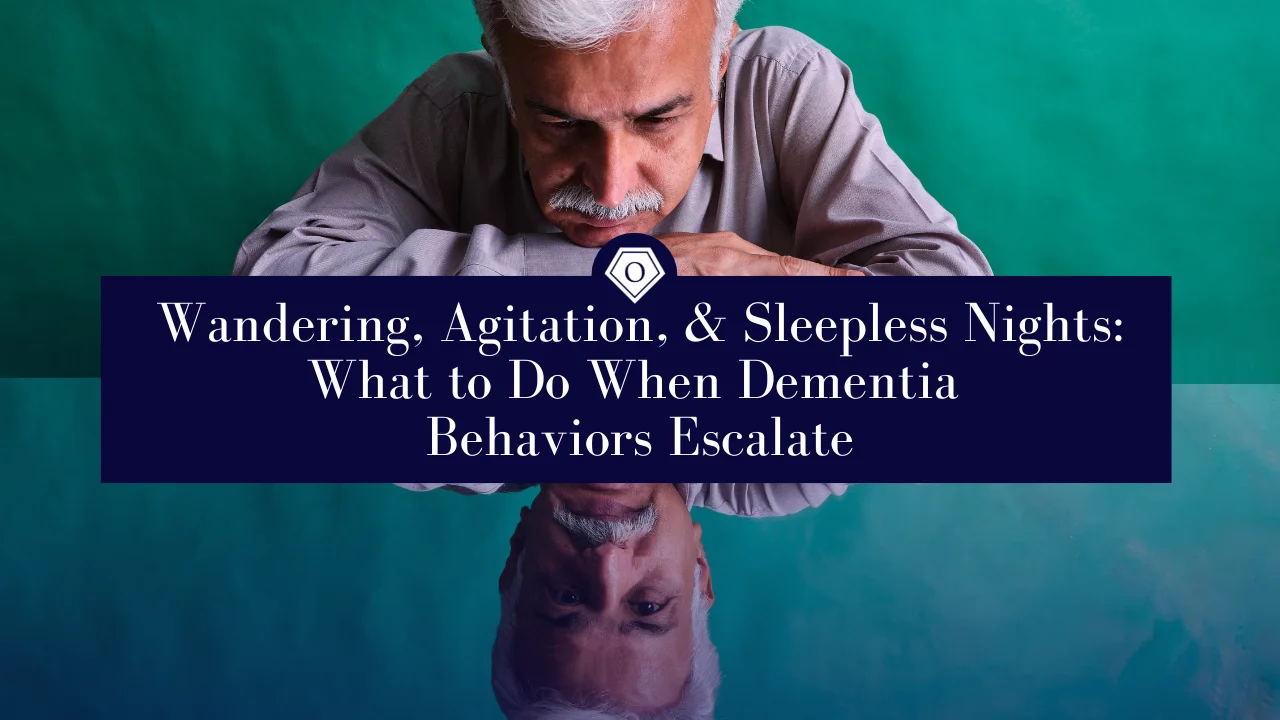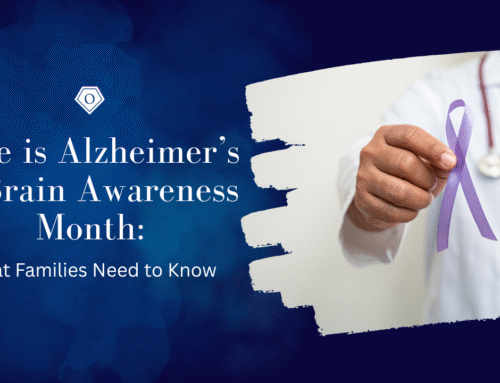Caring for a loved one with dementia can be an emotional and exhausting journey, especially when behaviors like wandering, agitation, and sleepless nights start to escalate. These changes can be overwhelming, leaving family caregivers feeling helpless and unsure of what to do next. However, understanding why these behaviors occur and how to manage them can help ensure the safety and well-being of both you and your loved one.
Why Are These Behaviors Happening?
As dementia progresses, changes in the brain affect how individuals perceive their surroundings and respond to everyday situations. This can lead to distressing behaviors, including:
- Wandering: Your loved one may become disoriented, attempting to “go home” even when they’re already there. Wandering is often triggered by confusion, boredom, or a need to find something familiar.
- Agitation and Aggression: Restlessness, frustration, and even aggressive outbursts can stem from unmet needs, discomfort, or an inability to communicate effectively.
- Sleeplessness and Sundowning: Many dementia patients experience increased confusion and anxiety in the late afternoon and evening, leading to difficulty sleeping and nighttime restlessness.
If these behaviors are becoming more frequent or intense, it may be a sign that additional support is needed.
How to Manage Wandering, Agitation, and Sleep Disturbances
While every person with dementia is different, here are some strategies to help manage these escalating behaviors:
1. Create a Safe Environment
- Install locks or alarms on doors to prevent wandering.
- Ensure the home is well-lit and free from tripping hazards.
- Use tracking devices or medical alert systems if wandering is a concern.
2. Establish a Routine
- Structure daily activities to reduce anxiety and restlessness.
- Schedule meals, exercise, and relaxation at consistent times.
- Avoid overstimulation in the late afternoon to minimize sundowning symptoms.
3. Address Unmet Needs
- Check if your loved one is hungry, thirsty, or in pain, as discomfort often leads to agitation.
- Provide a calming atmosphere with soft music or familiar objects.
- Use reassuring language and avoid arguing if they seem confused or distressed.
4. Support Better Sleep
- Encourage exposure to natural light during the day to regulate their sleep cycle.
- Avoid caffeine and screen time in the evening.
- Consider a weighted blanket or a soothing nighttime routine to promote relaxation.
5. Seek Professional Help When Needed
If these behaviors continue to escalate, it may be time to consider professional home health care. Trained caregivers can provide personalized support, ensure your loved one’s safety, and give you much-needed relief.
When to Reach Out for Help
If your loved one’s behaviors are putting their safety—or your own—at risk, professional home care can provide relief and support. Onyx Home Care specializes in dementia and Alzheimer’s care, offering personalized in-home assistance for families in Central Florida.
If you’re feeling overwhelmed, you don’t have to walk alone. Contact Onyx Home Care today for a consultation and learn how we can help.
Dementia & Alzheimer’s Care
Onyx Home Care’s neurological disorder care is built around a system of support. This service includes skilled home care as well as a unique program that centers on the patient’s interests and stage of illness. Our goal is to see happy family members, patients and caregivers. Often times, caregivers feel remote. Our team includes each person in the home care process to provide inclusive care that helps the patient thrive.






